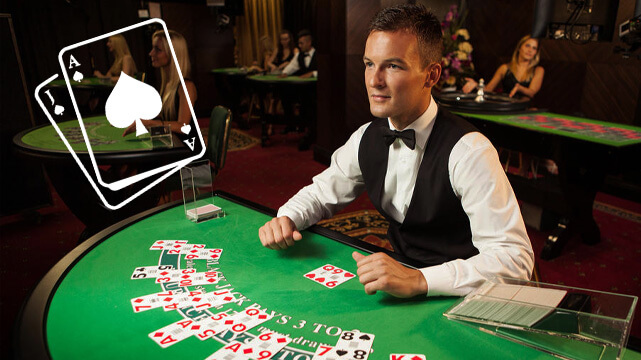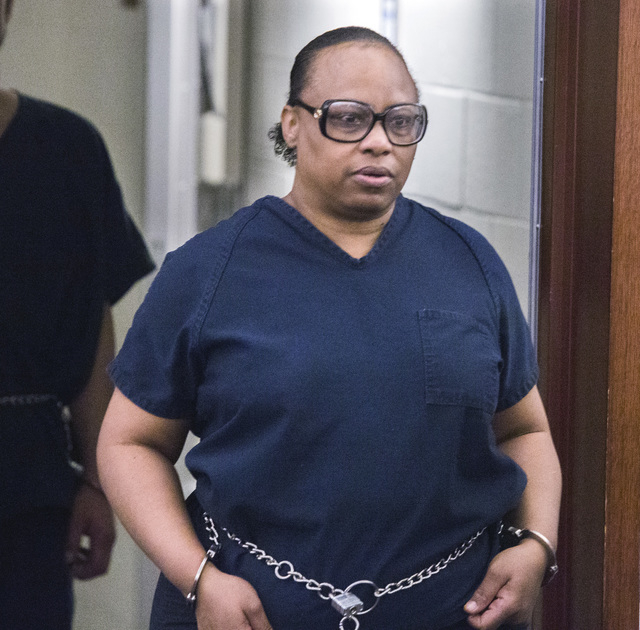What Happens When Dealer Gets Blackjack
What happens if the dealer get blackjack. There are a number of 'techniques' a few of these Winners of the Slot Competitions use, but we might never have knowledge of what they are unless we track a few of them very close since they are not well-known for sharing them openly. Mar 22, 2015 The dealer does not waste time by playing out the dealer's hand, the dealer stops drawing cards, discards the cards on the table and moves on to dealing the next hand. The fact that the dealer was on a course to bust is irrelevant.
- What Happens When Dealer Gets Blackjack Free
- What Happens If Dealer Gets Blackjack
- What Happens When Dealer Gets Blackjack Game
Wizard Recommends
- €1500 Welcome Bonus
- €100 + 300 Free Spins
- 100% Welcome Bonus
I side with the casino. The rules state the dealer stands on 18. The dealer has no free will and once she got 18 the 18 is firm. The extra card dealt does not alter the dealer’s 18 and it was correctly burned. In a one or two deck game some casinos will reshuffle in that situation.
Three questions of etiquette and ethics.- Blackjack dealer makes a mistake in your favor. Do you point it out? Do you tip?
- The etiquette of challenging the dealer where you think he made a mistake in favor of the house against you.
- You wrongfully challenge the dealer, is anything more than an apology expected?
All three have happened to me within the last month. I am a small time bettor so the correction of a win or loss is not significant to me. I'd prefer not jeopardize the dealer's job.
This is a delicate question. Personally I just keep my mouth shut. Once in Atlantic City I saw another player correct the dealer for an overpayment and neither the dealer nor pit boss thanked the player for his honesty. If the casino doesn’t seem to care then why should I? I also view making the correct payment as part of a game. Also, no I do not tip. Sometimes crooked dealers will deliberately overpay players hoping to get tipped in return. This is highly illegal and at least in Nevada they treat cheating as a comparable crime to bank robbery. So I wouldn’t want anyone, including the dealer, to think I was colluding on a mistake-for-tip scheme. Another reason to not say anything is that the dealer will have to call the pit boss over and confess his mistake. Anyone can make a mistake once in a while but if the dealer is known to be mistake prone already then, yes, it could put his job in jeopardy.

Note: See my Jan. 9 column for a dealer's answer to this question.

Thanks for the kind words and patronizing the advertisers. I’m happy to post what you said. For the benefit of those new to this column this refers to a question in the December 27, 2004 column.
That is a good question. In general the nicer the casino the lower the probability of dealer errors. Dealer errors are also much more likely in new games as opposed to the old classics. Also, in my opinion dealer errors go in favor of the dealer about ¾ of the time. I have never heard of any standard. To make a rough approximation I would say dealers make an error on average once every 1 to 4 hours.
I do not know of any formal study. As you would expect dealer errors tend to decrease as the quality of the casino goes up. I have personally played thousands of hours behind the tables since I turned 21 years old 19 years ago (it seems like just yesterday). Based on all that play I strongly feel that most errors favor the house, probably about 80%. For example many dealers do not know that you still pay the ante bonus in Three Card Poker even if the player lost or the dealer didn’t qualify. (Bluejay got shortchanged this way because he wasn’t sure of the rule himself.) I’ve had a few dealers disagree with me on this rule, who were later correctly overruled by the pit boss. I wonder how many players, who don’t know the rules as well as I do, were shortchanged by these same dealers before I played. Of course the error is more likely to be corrected if the error favors the dealer. I tend to think the cost of errors to the casino is not very high because of the higher percentage in favor of the dealer. In fact I wouldn’t be surprised if the casinos actually made money from errors overall. If anyone in casino management has another point of view then I’m all ears to hear it.
For procedure questions like this I like to turn to Brian S., a casino manager and former regulator. Here is what he said.
In my estimation, the dealer should have called the supervisor over before burning the card on his own. The dealer shouldn’t make decisions like that. If I was on the floor, I would have asked the player at 3rd base if he wanted the burn card or the next card in the shoe. If he selected the next card, I would not have shown him the burned card. He may still have been upset by the outcome, but I bet he would have stayed at my table.
Thanks for your comments. That sounds more or less like the usual policy in Vegas as well.
Casinos don’t like to back up cards because it may cause some players who won because of the mistake to lose. The general policy is that if there is a mistake more than one card back then the hand is ruled dead. However often casinos will bend the rules a bit to keep the players happy. For example, last month I was playing blackjack at the Venetian by myself, when I doubled down. The dealer never saw me make the double down bet, thinking I stood, turned over his cards, and hit is own hand with a 4. I then brought the mistake to the dealer’s attention. The pit boss gave me the choice of accepting the 4 as my double down card or it could be burned for the next card in the deck. I chose to burn it and the next card was another 4, and I ended up losing. Although I was happy with how it was handled the pit boss told the dealer to push my bet anyway, which I thought was very nice and beyond the call of duty. To get back to the issue, as long as the floor gave you back your full bet then I think that was procedural.
My flashing blackjack dealer strategy shows what to do in any situation where the dealer accidentally exposes his hole card. However, most players don’t have that memorized, incluing me. In cases like this where the dealer’s two cards total nine or less you may use basic strategy, assuming the dealer’s up card is the sum of his two cards. Using that rule of thumb, all three players played correctly. Contrary to what the dealer said, the player has every right to use any information gleaned from dealer errors like this. Not only would I have ignored the dealer’s comment, I would have kept playing, hoping he would do it again.
One seemingly good bet to beginning blackjack players is taking insurance. And a major reason why beginning players are fooled into thinking insurance is a good idea is because dealers ask players beforehand if they want insurance when the opportunity arises. However, this is a very poor wager, and we’ll get into the specifics of why after explaining more about this bet.
How Insurance Bets Work
The opportunity for insurance wagers arise when the dealer draws a face-up ace; at this point, the dealer will go around the table and ask everybody if they want to take insurance. The insurance is in case the dealer receives a blackjack, and you put out half of your original bet as the insurance. Assuming the dealer does have a blackjack, you win 2-1 on your insurance wager.
To illustrate how this works, let’s say that you make a $10 bet, and the dealer shows an ace. You then take the offered insurance bet by laying another $5 out on the table. The dealer turns over his second card, which is a king, thus giving him a blackjack. In this event, you receive win $5 on your insurance bet ($10 total), but lose $10 since the dealer had a blackjack. So basically, your overall bet was a push, and this doesn’t seem like such a bad deal so far.
Now, let us assume that the dealer didn’t have a natural blackjack; in this instance, you automatically lose the $5 insurance wager; however, you still have a chance to win the original $10 wager if your hand beats the dealer’s.
What Happens When Dealer Gets Blackjack Free
Why the Insurance Bet is Bad
What Happens If Dealer Gets Blackjack
Consult any source of blackjack strategy and they’ll tell you that insurance is bad. And the first thing you have to understand with this concept is exactly what insurance entails. Most players mistakenly assume that insurance is meant to protect their hand in the event that the dealer has a blackjack. But the reality is that insurance is merely a wager on the dealer having a natural blackjack.
What Happens When Dealer Gets Blackjack Game
The main number you want to concentrate on here is 9:4 odds – or rather, the odds against the dealer having a blackjack when they’re showing an ace is 9:4. To break this down further, let’s say you make $5 insurance bets 130 times; based on the 9:4 odds, you’d win your bet 40 times for $400 in total winnings ($10 total earnings X 40 bets). On the other hand, you’d lose 90 of these bets for $450 in total losses ($5 total losses X 90 bets). As you can see, this leaves you $50 in the hole, thus making it a bad bet overall.
